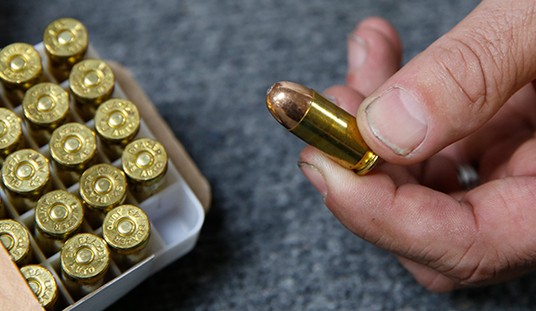Texas passed its abortion law and the Supreme Court has decided to let it stand. For better or worse, that is what it is, at least for now.
Many argued that the law would get spun and used against gun rights in this country, something I actually figured was likely as well, and California Gov. Gavin Newsom was quick to prove us right. Now, the most anti-gun state in the nation is considering a bill that would allow people to sue gun manufacturers.
And some people think that’s the smart move.
Over the past week, Governor Gavin Newsom of California has broached introducing legislation that would do to gun providers what Texas has done to abortion providers: deputize a massive army of private “bounty hunters” to put them on the defensive. A California initiative would allow any Californian to sue “anyone who manufactures, distributes, or sells an assault weapon or ghost gun kit or parts” and recover unlimited damages. The defendants would have to plead their Second Amendment rights in appealing adverse verdicts — if they could stay in business long enough to do so, which many could not. Governor Kathy Hochul opened the door for a similar approach in New York with earlier legislative action that authorizes suits against gun manufacturers for injuries and deaths linked to firearms.
At long last, Democrats are coming armed to a political gunfight.
The decision to borrow this approach — which eliminates the pre-enforcement injunctive remedies that previously shielded federal rights from such assault by ensuring that no state officials amenable to federal suit play a role in the assault on those rights — has drawn handwringing from across the political spectrum. Politicians on the right who only weeks ago championed a similar approach for ending abortion now hypocritically cry foul when the topic turns to saving lives from gunfire. Of more concern, some high-profile liberals and progressives vocally resist such efforts as unprincipled examples of stooping “to the level of conservatives in circumventing federal courts’ authority.”
What is largely missing from these op-eds, however, is any real understanding of the issue.
First, any state law has to deal with the Protection of Lawful Commerce in Arms Act, or PLCAA. That’s the law that actually blocks lawsuits against gun makers for actions carried out by a third party.
It’s amazing how some of the same people who lament Missouri’s Second Amendment Preservation Act because they say it nullifies federal law will ignore the fact that PLCAA is also federal law.
Second, there are some important nuances to remember when comparing the Texas abortion law and a similar effort targeting gun manufacturers.
For one thing, there’s the fact that an abortion provider is knowingly performing an abortion. This isn’t something they just do by accident. A patient comes to them and says, “I want an abortion.” The provider says, “OK,” then performs one. There’s no ambiguity or misunderstanding here. Everyone in the room knows what they’re doing there.
So, when a provider gets sued, there’s at least no misunderstanding about whether or not they knew they were performing an abortion.
That’s a simple fact about Texas’s abortion law.
With guns, it’s not that cut and dried. All manufacturers make guns and then sell them, but most of those go to gun stores, which are required to perform criminal background checks. The few they sell directly are sent to FFL holders who conduct the same background check. They sell these guns for a variety of reasons. People buy them for self-defense, for recreation, for hunting purposes, or any of a thousand other reasons.
As such, there’s no reason for a gun manufacturer to believe when they sell a firearm that it will result in the death of a human. After all, there are an estimated 400 million guns in a nation of 330 million. If each gun were expected to claim a life, then the American people would be extinct. The fact that we’re not illustrates how gun manufacturers have reason to not believe such a thing.
So when you’re talking about the abortion law, you have someone who knows precisely what they’re doing compared to companies that don’t have any reasonable expectation that what they’ve created will be used for nefarious purposes.
That’s an important nuance that people like the authors here, one of whom is none other than David Hogg, prefer to miss. I say “prefer” because there’s no way they can’t grasp that difference. It has to be willful and I don’t mind calling them on that.
Whether you like the abortion law or not doesn’t actually matter. What matters is that trying to apply it to gun makers means ignoring a lot of vital differences, differences that I believe will make a difference when the inevitable court challenges come up.








Join the conversation as a VIP Member